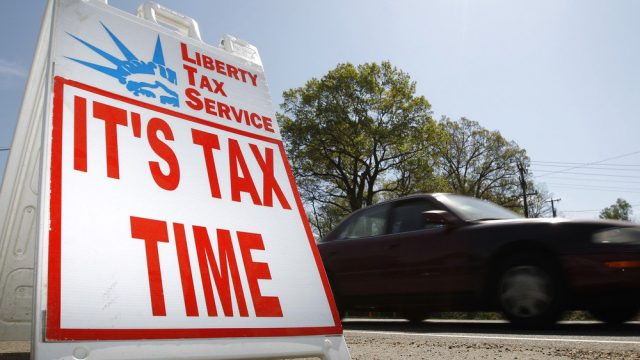ND Lawmakers Will Have Two Choices On Income Taxes: Eliminate It, Or Phase It Out

Rep. Al Carlson, the House Majority Leader, has announced that he will be introducing legislation which would take North Dakota’s personal and corporate income tax rates down to zero. But back in September Rep. Scott Louser of Minot announced here on SAB legislation that would take income tax rates down to zero as well.
What’s the difference between the two bills? After speaking with Carlson and Louser this morning, this is what I’ve learned:
- Carlson’s bill addresses personal and corporate income taxes. Louser’s just looks at personal income taxes
- Louser’s bill takes personal income taxes down to zero immediately. Carlson’s steps both personal and corporate rates down to zero over four years.
- Louser’s bill eliminates all of the existing personal income tax brackets, leaving a flat tax of zero percent with the idea being that if the income tax is resurrected it would be resurrected as a flat tax. Carlson’s bill doesn’t do this.
I’ll have both gentlemen on the radio this afternoon on WDAY AM970 (I’m guest hosting the Jay Thomas Show) to talk about their proposals.
One major obstacle both Louser and Carlson will have is Governor Jack Dalrymple and a caucus of legislative Republicans (mostly in the state Senate) who dislike cutting income taxes. They’ll be joined by Democrats in opposing these bills.
“I think at a time when we’re seeing warning signs of not wanting our budget to be dependent on the price of a commodity, I think eliminating the income tax is shortsighted,” Senate Minority Leader Mac Schneider, a Democrat from Grand Forks, told Mike Nowtazki. “We’ll be focusing on tax relief, but it’ll be on the tax that people are most concerned about, and that’s property tax.”
Also complicating the case for income tax reform is continued rancor over property taxes. Nothing the legislature has done over the past several bienniums to buy down property tax rates has eased unhappiness with the tax. It continues to be a politically toxic situation, and those upset about it seem to have little patience for income tax cuts (which is why opponents of these bills are going to triangulate by bringing up property taxes, as Schneider does).
The common refrain that I hear is that income taxes are already so low that they’re irrelevant. A more pressing concern, I’m told, is property taxes.
But we should be careful not to discount just how much relief taking income tax rates down to zero would mean for the state.
In the 2011-2013 biennium the personal income tax rate brought in over $1.046 billion in revenue while the corporate income tax brought in almost $386 million (that was a 64.6 and 31.2 percent increase over the previous biennium, respectively).
So far in the 2013-2015 biennium the personal income tax has brought in almost $702 million (up 18.5 percent over the previous biennium) while the corporate income tax has brought in more than $289 million (up more than 36 percent).
Even if income tax rates are only zeroed out for the income tax, we’re talking about more than a billion dollars in tax relief per biennium. And that’s real tax relief, not phony-baloney spending shifts where the state spends more money at the local level and everyone calls it property tax relief.




